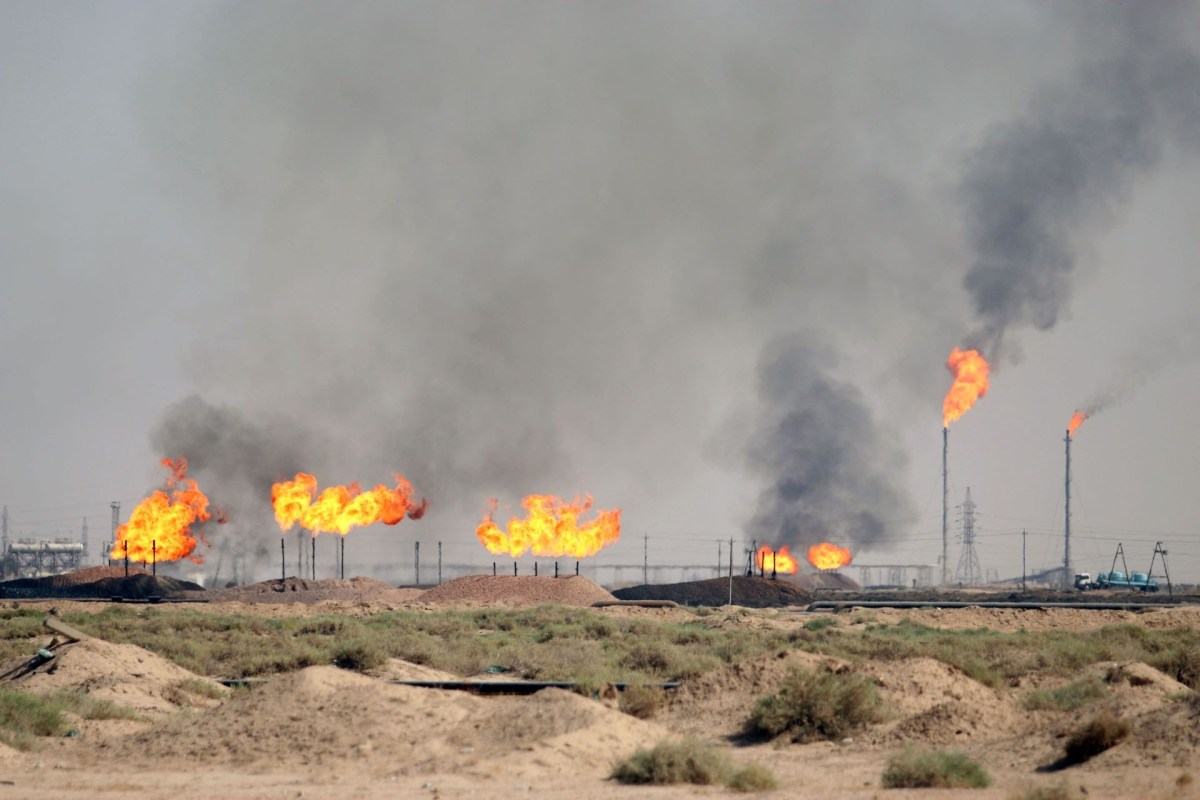A 21-year-old man was set to address British Petroleum (BP) shareholders on the safety of the industry just days before he died on April 21 from cancer tied to the oil giant's activity near his home, as reported by The Guardian.
Ali Hussein Jaloud, an Iraqi citizen who lived near the Rumaila oilfield, one of BP's biggest oilfields, developed leukemia when he was just 15 years old. Doctors told him he was sickened by the pollution from BP's nearby oilfields.
As the oil giant raked in record profits, Jaloud corresponded with journalists at The Guardian to document his and his community's experiences. His work was critical, as Rumaila does not allow access to journalists.
Our community is devastated by the loss of Ali Hussein Juloud who succumbed to his battle against leukaemia on 21 April at the tender age of 21. We share our deepest sympathies and condolences with his family and loved ones. https://t.co/KWNt2eRSZZ #ClimateJustice pic.twitter.com/M7KyXlzfsY
— Climate Action Network International (CAN) (@CANIntl) April 28, 2023
Thanks, in part, to Jaloud's work, journalists Jess Kelly and Owen Pinnell produced a documentary called "Under Poisoned Skies," which explored the effects of gas flaring in Iraqi oilfields.
Gas flaring is the intentional and often unnecessary burning of excess gas created during oil extraction. While oil and gas companies could build out infrastructure to capture the excess gas, which would be safer for citizens living near such plants and our planet, it is cheaper for them to burn it off, putting us all in jeopardy. This burning creates dangerous, planet-heating air pollution and can contain carcinogens such as benzene.
Jaloud is not alone in his fate. Because the enormous Rumaila oilfield has the most gas flaring of any oilfield on the planet, cancer rates in the areas around it are extraordinarily high in what U.N. officials describe as a "modern sacrifice zone."
It wasn't until after BBC published "Under Poisoned Skies" that the Iraqi Environment Minister admitted that the oil production was causing the unacceptably high cancer rates. Local teenagers have dubbed the town near this oilfield as "the cemetery."
Thanks to Jaloud's documentation, it was shown that BP was flaring gas dangerously close to nearby residential communities, which is illegal. In Iraq, flaring is only allowed when it's more than 6 miles from citizens' homes.
In Jaloud's last post on Instagram, he urged changes be made to the damaging oil industry to "save the youth of these areas from … frightening cases of kidney failure and cancerous diseases."
Jaloud was uniquely brave, but unfortunately, his story of living on the front lines is not uncommon. His story highlights the importance of holding dirty energy giants accountable and preventing them from committing greedy and disastrous actions in the first place.
Since Jaloud was no longer able to challenge BP's chief executive over the continued pollution of his community that led to his untimely death, his bereaved father, Hussein Jaloud, spoke at the shareholder meeting on his behalf.
"Because of this poisonous air, many people here are sick," Hussein said, as reported by the BBC. "In fact, cancer is so common here, it's like the flu."
Ali Hussein Julood died last week of Leukaemia - which his doctor said was likely caused by gas-flaring from nearby #BP's #Oil fields in south #Iraq. Ali's father told BP that his son's life was sacrificed for the company's profits. https://t.co/fWRaiy5Yvc pic.twitter.com/qOvZQXSnFi
— Donatella Rovera (@DRovera) April 29, 2023
At the same meeting, BP CEO Bernard Looney touted the company as having allegedly decreased gas flaring at Rumaila by 65% over the last seven years. The BBC, however, found the actual number was closer to 25%. As the community surrounding the oilfield continues to be impacted, Hussain says it's not enough.
"Ali broke my spirit because he was my firstborn son. He was a hero during his journey of treatment until his last moments before his passing," Hussain told the BBC through tears. "He did not fear the disease or death."








